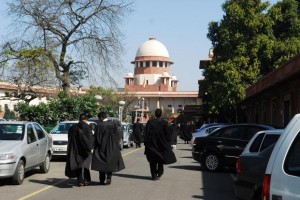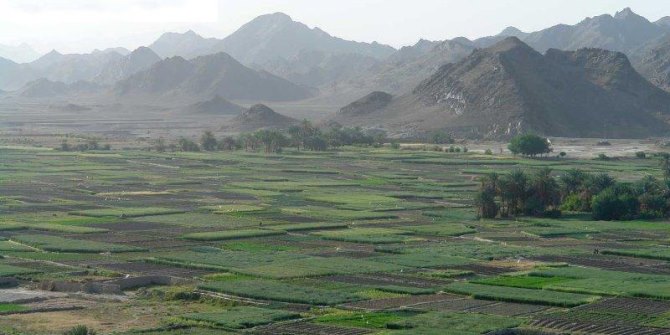LSE’s Sivaramjani Thambisetty analyses the response of India’s criminal justice system to the gang rape and subsequent death of a young student in New Delhi.
One of the first things law students in many universities, LSE included, do at the start of their education is watch the film “12 Angry Men”. The movie pits conscious and unconscious prejudices against a rational weighting of evidence in a case, drawing the viewer into a deep consideration of the role of beliefs, facts and truth in the pursuit of justice. The film offers a compelling way to learn about the importance of legal due process. Lawyers who are part of the district bar association in Saket, a Delhi suburb, could do worse than watch this movie.
In an astonishing move last week, they refused to allow association members to defend those accused of the gang rape on a Delhi bus in December; reportedly, some members contributed to chaotic scenes when the accused were presented in court on Monday. The crime, although not unusual in itself, has incited public outrage like no other due to the brutality inflicted on the 23-year-old victim. Legal representation, even for perpetrators accused of the vilest crimes, helps ensure effective decision-making and increases the accountability of all criminal justice personnel involved. In this respect, protecting the right to legal representation of criminal defendants is the best way to preserve the possibility of justice for all. Through this ill-considered action, the Saket Bar Association has shown how lawyers in India can often be part of the problem, rather than the solution.
It is not difficult to find compelling reasons why the accused have a right to legal representation and why it is wrong for Saket’s lawyers to impede that right. Article 22(1) of the Indian Constitution as well as the Bar Council of India’s rules make it clear that criminal defendants have the right to be defended by legal practitioner of their choice, and that no lawyer can refuse a brief unless there are special circumstances. The Supreme Court has been consistently emphatic that free legal assistance at state cost is a fundamental right of a person accused of an offence which may involve jeopardy to his life or personal liberty (Sukhdas v UT of Arunachal Pradesh).
More importantly, this right and corresponding obligation does not require lawyers to be unemotional, but it requires them to be professional despite their beliefs. Saket Bar Association has demonstrated that its lawyers are subject to their strong feelings on the brutal assault suffered by the rape victim. The flaunting of such emotions in contravention of law and professional ethics begs the question, what else are these lawyers subject to? Caste politics? Religious prejudice? North-ism? Sexism? And how often do they succumb to such prejudices in the course of their working life? Are they self-aware of their prejudices, and do they face the stigma and sanction of colleagues when they betray their professional obligation to the rule of law?
On 20 December 2012, the UN General Assembly enacted the UN Principles and Guidelines on Access to Legal Aid in Criminal Justice Systems. The treaty recognises that legal aid through state funding is an essential element of a fair and efficient criminal justice system and a foundation for the right to a fair trial. In other words, the right to legal aid, including advice, assistance and representation is such a fundamental part of a humane society that all states are now obligated to work towards the resources and capacity needed to realise these principles.
The response to the current case from officialdom has been far from ideal. Many of the demands and responses in fact resonate with Ajmal Kasab’s prosecution, not just because his right to legal representation was under threat but also because of the death penalty and issues of juvenile justice. In Kasab’s case, more money was spent by the state on legal aid per day than on any of the other death row convicts put together. This may have something to do with the fact that inadequate access to legal aid is a prime reason for death sentences to be commuted. Kasab’s subsequent speedy and secretive execution now threatens the de facto moratorium on the death penalty that has been in force in India since 1998. The Supreme Court itself has acknowledged that many convictions are unsafe, poverty is a significant factor, and that the penalty has a “class bias and a colour bar”. The subjective criteria on which the sentence is imposed includes whether the case “shocks one’s conscience” or amounts to the “rarest of rare” circumstances. These are vague criteria masquerading as legal doctrine. And the deterrent effect of the death penalty in rape cases like the one currently causing nationwide outrage? It is a direct incentive to kill the victim.
There have also been disturbing moves by state government heads of police and the central government’s Minister for Women and Children to reduce the juvenile age limit from 18 to 16 since one of the accused in the gang rape case is a 17-year-old. This goes against India’s obligations under the UN Convention on the Rights of the Child, ignores child welfare advocacy, and will require an amendment to the hard won Juvenile Justice (Care and Protection of Children) Act 2000. Poverty can affect the development of children in many ways. In this case, the juvenile accused of participating in the gang rape was apparently separated from his family when he was six years old, and worked all his young life in exploitative and hazardous circumstances. The rush to push down the age limit is an attempt to quell public anger long suppressed, rather than focus on child protection and reformative justice.
When Saket’s Bar Association prohibited its lawyers from representing the accused, it assumed the mantle of judge and uncovered the depth of the problems the legal system and society face. Unfortunately, both the state and lawyers seem to have lost their way in the perfect storm of public emotions raised by this brutal case. Several commentators have pointed out the need for social change (here, here, and here). But the hard slog of social change lies in the middle, in squarely addressing the minutiae of daily degradation that most Indian women face. To spur this change, the Indian criminal justice system needs a raft of measures that facilitate access to justice and the enforcement of the rule of law across class divides, not the stoking of a lynch mob.
Sivaramjani Thambisetty is a lawyer who teaches and researches on patent law, innovation and legal institutions, at LSE’s Department of Law. Follow her on Twitter @sivathambisetty.
Photo credit: Pradeep Gaur/ Mint








